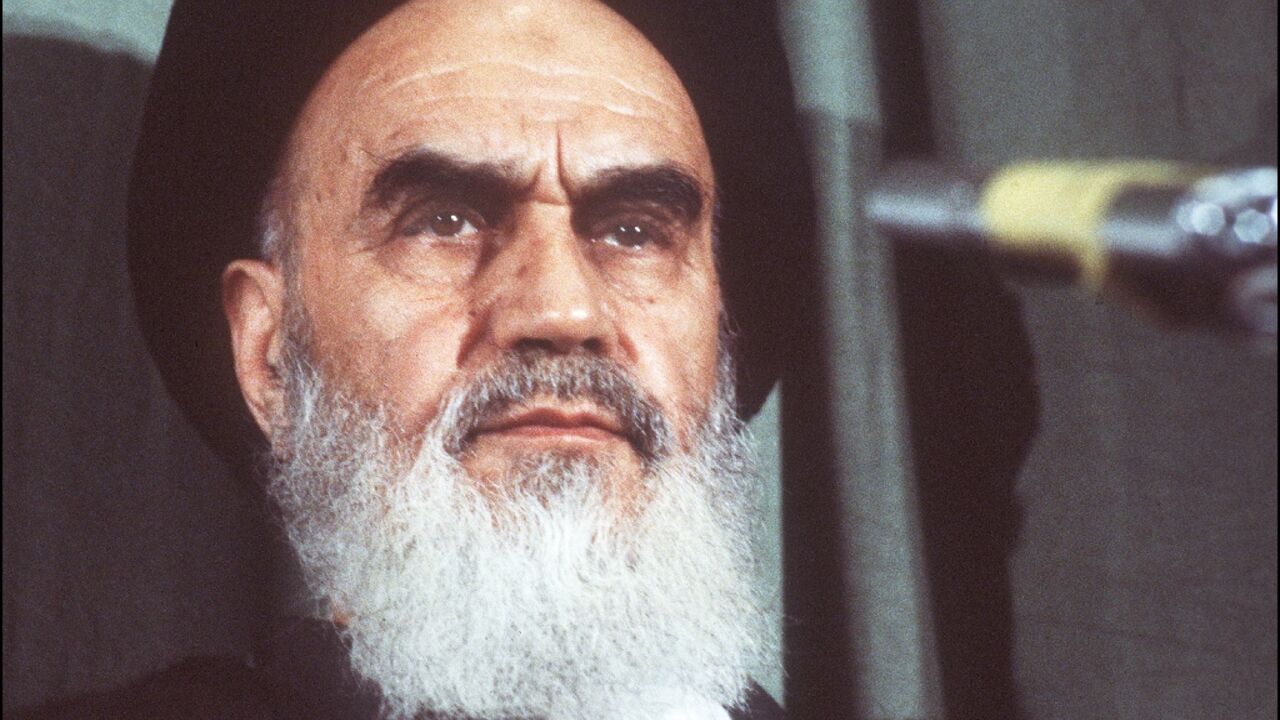Israel can cut off the head of the snake and free the Iranian people
Iran’s ambitions to eradicate Israel have faltered, and the “resistance axis” led by Tehran faces a potential collapse.
By Yair Ansbacher
JNS
Oct 31, 2024

Ayatollah Ruhollah Khomeini took over Iran in 1979
The 1979 takeover of Iran by Ayatollah Ruhollah Khomeini and the Revolutionary Guards, once seen by some as a hope for change, has become a nightmare for millions. Decades of repression—mass executions, torture, religious coercion and severe suppression of rights—have fueled widespread disillusionment among the Iranian populace. Iran’s violent, isolationist foreign policy has further estranged its people and amplified their yearning for freedom.
Amid this landscape, Israel’s recent “Operation Days of Repentance”—its first direct strike on Iran—signals a pivotal shift. Iran’s ambitions to eradicate Israel have faltered, and the “resistance axis” led by Tehran faces a potential collapse. Millions of Iranians are again sensing the possibility of freedom, a potent force Israel can harness to aid their liberation.
The regime in Tehran has long wielded control over the Middle East by financing and arming Hamas and Hezbollah through its Quds Force, the foreign wing of Iran’s Islamic Revolutionary Guard Corps, or IRGC. As both groups relentlessly target Israel, Iran’s influence ignites terror across the region. The Quds Force provides advanced missiles, drones and funds, maintaining Hezbollah’s dominance in Lebanon and supporting Hamas in Gaza. Through its proxies, Iran spreads fear and undermines stability, all while tightening its grip on the Iranian people.
U.S. policy under the leadership of President Joe Biden, including efforts to re-engage Tehran diplomatically and ease sanctions, has unfortunately reinforced Iran’s terror network. Billions of dollars have flowed into Iran under these policies, not to improve the lives of everyday Iranians but to empower the IRGC and Quds Force, whose backing of regional militias and terror networks jeopardizes peace. The impact is clear: Hezbollah, with more than 150,000 rockets, is poised to target Israeli civilians, and Hamas intensifies its terror tactics from Gaza, emboldened by Iranian support. This misdirected funding perpetuates violence, linking directly to the ongoing chaos in Israel and beyond.
Let’s be clear: The only reason Tehran and their terrorist proxies are flush with cash and able to carry out their malign mission to destroy Israel is because of Biden’s failed foreign-policy agenda.
To confront Tehran’s influence, Israel must adopt a targeted approach. Instead of striking Iran’s oil and nuclear infrastructure, Israel should focus on key governmental and military sites symbolic of the regime’s oppression. Achieving air superiority, dismantling the IRGC leadership and targeting Basij—the volunteer paramilitary militia—and other oppressive forces will show Iranians that Israel stands with them against tyranny. Attacks on infamous prisons, like Evin, where dissidents languish in horrific conditions, could galvanize public support, inspiring a popular uprising.
History shows that when resistance within Iran gains momentum, the IRGC faces severe strain as they are forced to defend their regime amid internal chaos. Israel’s strategy, combined with encouragement for local uprisings, could overextend Iran’s security apparatus, complicating its support for external proxies like Hamas and Hezbollah. Even partial success—a substantial public uprising—would unsettle Tehran, distracting it from destabilizing actions abroad and paving the way for future measures, should they become necessary.
Iran’s regime is not a victim of international isolation; it is the architect of its people’s suffering and regional turmoil. If the global community, led by the United States, genuinely seeks peace, it must sever Iran’s financial lifelines and confront the regime directly. Tehran’s hegemony relies on its unchecked ability to arm and finance terror, an influence that grows unchecked when sanctions are lifted without accountability.
Today, a window has opened. Iranians feel the intoxicating possibility of freedom—of restoring their nation’s dignity and reconnecting with the world. Israel can stand as an ally, showing solidarity with the people of Iran while delivering strategic blows to the regime’s lifeblood. By empowering Iranians and targeting symbols of oppression, Israel and its allies can weaken the head of this terror snake, paving a path toward a more stable Middle East and lasting peace.
No comments:
Post a Comment